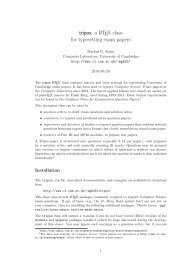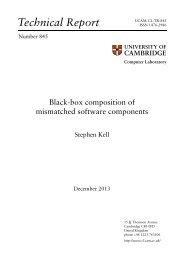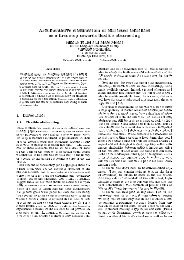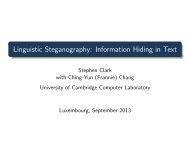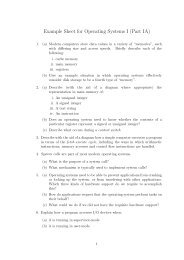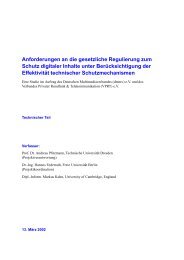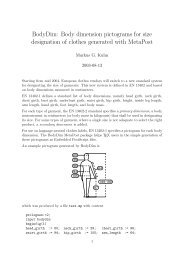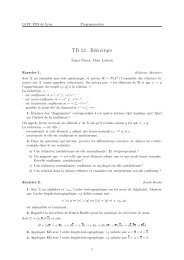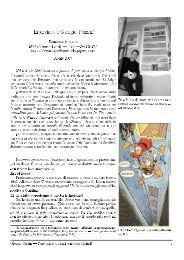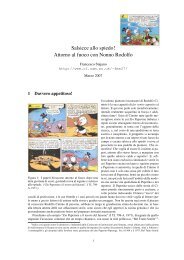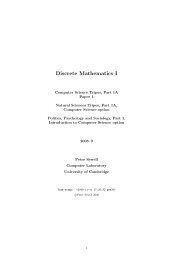Radical innovation: crossing knowledge boundaries with ...
Radical innovation: crossing knowledge boundaries with ...
Radical innovation: crossing knowledge boundaries with ...
Create successful ePaper yourself
Turn your PDF publications into a flip-book with our unique Google optimized e-Paper software.
7. Obstacles to interdisciplinary <strong>innovation</strong><br />
7.1.1 Silos<br />
Is there a ‘problem’ that are we aiming to ‘solve’ in this report? The commonplace<br />
characterisation of the kind of structures that oppose interdisciplinary <strong>innovation</strong> is<br />
that of the ‘silo’. The metaphor implies depth (of <strong>knowledge</strong>), accumulation, and<br />
investment in resources (of <strong>knowledge</strong>) against some future time in which they might<br />
be required. The silo metaphor also implies protection (against leakage or vermin).<br />
But most importantly, the walls of the silo are a barrier that prevents both <strong>knowledge</strong>,<br />
and the people holding that <strong>knowledge</strong>, from encounters <strong>with</strong> the outside world.<br />
Those kinds of encounter are fundamental to <strong>innovation</strong>, which requires that an idea<br />
move into a commercial context, or that an organisation applies <strong>knowledge</strong> that it has<br />
not used before. When we use the word ‘interdisciplinary’ in this report, we really<br />
mean the things that happen when it is necessary to work across silos, but we do not<br />
want to suggest that disciplines are bad in themselves, so working across them is an<br />
opportunity, not an attempt to solve a specific problem.<br />
The conception of <strong>knowledge</strong> as a cumulative resource, to be added to and<br />
safeguarded, naturally leads to the development of something like a silo, as the place<br />
where the <strong>knowledge</strong> will be stored and organised. However, speaking as if<br />
<strong>knowledge</strong> is a cumulative resource obscures the social relations of <strong>knowledge</strong><br />
production. Social relations are also obscured in the commercial and policy emphasis<br />
on intellectual property at the core of the <strong>knowledge</strong> economy. The notion of IP is<br />
underpinned by an emphasis on conceptions of the individual (the inventor) rather<br />
than the social context in which interdisciplinary <strong>innovation</strong> generally arises, and<br />
similarly presupposes a particular model of <strong>knowledge</strong> production at the expense of<br />
more collaborative practices productive of different modes of <strong>knowledge</strong>.<br />
In academia, especially in the humanities and social sciences, reward structures and<br />
professional development are heavily skewed towards individual appraisal and<br />
accomplishment. Individuals are encouraged to publish in journals specific to their<br />
own disciplines in order to further their own careers. Where research findings might<br />
be of relevance to practitioners from other disciplines the pressures of career<br />
development may act as a barrier to wider dissemination through publishing in<br />
journals relevant to these disciplines. In a highly competitive ‘publish or die’<br />
environment the funneling effect of publishing in disciplinary specific journals is<br />
significant.<br />
There is also some stigma attached to be the label ‘interdisciplinary’, such that<br />
relatively junior academics yet to establish themselves in the academic hierarchy as<br />
effective disciplinary practitioners might well damage their career prospects by being<br />
labeled as someone that is interdisciplinary. Interdisciplinary engagement is often the<br />
domain of more senior academics already well placed in the hierarchy and <strong>with</strong> less to<br />
risk by stepping outside of the <strong>boundaries</strong> of their disciplines.<br />
Innovation and Interdisciplinarity 71



